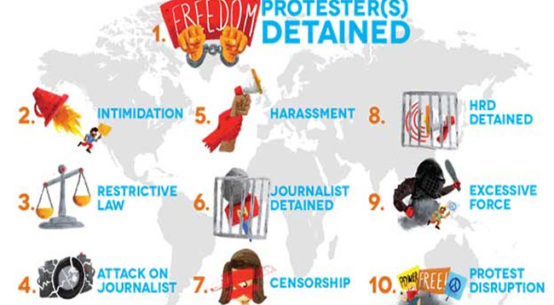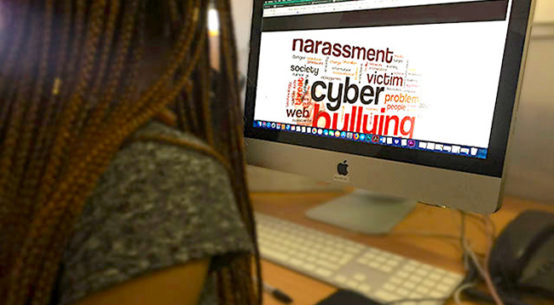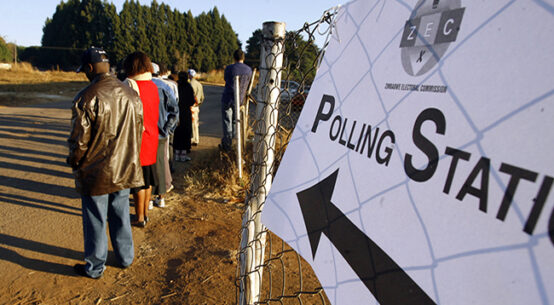
There are Archaic pieces of legislation in the Zambian penal code which are in contrast with the current democratic dynamics and need urgent review to allow print and broadcast media to thrive as the fourth estate, a regional watchdog suggests.
Citing the Penal Code, Cap 87 of the Laws of Zambia, the Media Institute of Southern Africa (MISA)-Zambia chapter notes that the existing legal and policy framework needs review to redress the negative impact on media freedom as adduced by various provisions in the statute books which, in fact, directly or indirectly also curtail press freedom in the wider context.
In a submission to the Parliamentary Committee on Media, Information, Communication and Information Technologies in Lusaka, based on a study titled: “Review of the media space in Zambia” and commissioned by the Parliamentary Committee on Media, Information, Communication and Information Technologies, MISA notes that the current laws have some shortcomings and remain inimical to democracy.
MISA Zambia director Austin Kayanda notes the contrasts in the same penal code which he argued is embedded with various provisions imposing restraints on the media in their role of informing the public.
Arguably, the same legislation codifies criminal law applicable in Zambia since 1930 and embraces several provisions that stifle investigative reporting and inimical to media practice in general, making the media vulnerable to various forms of harassment including arrests of practitioners.
“In Zambia today, despite the positive developments; journalists, editors and media houses continue to be victims of repression.” he told the committee that sat in Lusaka, Tuesday.
“They are arrested, detained and censored, and are restricted by economic, political and legal pressures such as licensing systems which restrict the opportunity to publish/broadcast to wider audiences due to frequency limitation when it comes to radio and due to cost when it comes to Television.”
While the constitution is the supreme law and citizens have the right to defend it, calls for law reforms to ensure all laws being formed are in conformity with the constitutionally provided rights on freedom of expression, media freedom and the right to information has largely fallen on deaf ears.
The Zambia legal landscape, he noted, has laws that remain inadequate and in some instances oppressive. Some key laws have been pending enactment for decades like the Independent Broadcasting Authority Act which remains inadequate while the Penal Code is highly oppressive.
Kayanda contends further that for freedom of expression to be meaningful, access to information is cardinal and the continued lack of an access to information law in Zambia, as espoused by interest groups and state actors is impacting freedom of expression and that for the media in Zambia, and is a source of concern.
MISA Zambia, a branch of the 16-member countries that oversee matters of press freedom and access to information for practitioners stresses the importance of Freedom of Expression, Media Freedom and Access to Information which is at the core of any functioning democratic system and the lack of it democracy cannot thrive.
Freedom of expression serves a number of broad purposes. They include the ability of an individual to access information and an opportunity to express her/his own ideas if she or he is to grow.
It assists in the discovery of truth and thirdly, it enhances the capacity of an individual to participate in a democratic society. Media freedom remains vital and constitutes part of freedom of expression while media constitute the fourth pillar of democracy.
“The role of the media is vital in generating a democratic culture that extends beyond the political system and becomes engrained in the public consciousness over time.” Kayanda stated.
“Therefore, a free and independent media is the foundation of any democratic society because it fosters the publics’ right to know and demand their rights. Further, it provides a forum for public debate on matters of public concern.”
MISA espouses the establishment, maintenance and fostering of an independent, pluralistic while free media remains essential to the development and maintenance of democracy in a nation, and for sustainable development.
He, however, notes the increasing cases of damage to equipment used by media in various errands as a source of concern while threats of death on journalists have been recorded in Zambia as it relates to these rights, majorly in the political realm.
Periodic reports measuring these freedoms and published by MISA Zambia are never short of these incidents, save for death which is highly unlikely.
Whilst it is rare for journalists in Zambia to be killed, they are victims in various circumstances. They are often subject to job loss on flimsy grounds, especially in state owned media for not towing the media owners’ line or party in power’s wishes.
They are lowly paid and poor conditions of service; especially in private media is a source of concern and highly prevalent. Online users are also victims of persecution for defending press freedom.
Another worrisome threat to these rights is the ever increasing number of online users in Zambia being arrested and convicted for freedom of expression-related activities.
MISA is however concerned at the rising abuse of online platforms in Zambia including cyber bullying and acts of defamation which are mistaken for freedom of expression online which need to be curtailed.
Suspected reports of increasing state surveillance on citizens and interception of private data too, also pause concern, prompting a thought that the technology in itself is enabling this frowned upon state action.
On the cyber laws, MISA Zambia notes that while cyberspace is a cheaper and most open place for people to express themselves, the state has taken interest, seeking to regulate hence the enactment of the Act on cyber laws, that are now stifling the free expression of the people while the media is restricted on their role as ‘fourth estate’.
The cyber space is enabling advocates, political parties and citizens to mobilise and demand their rights. It is assisting them to hold the state or Duty Bearers (DBs) accountable.
The cyber space has been used by citizens and media houses to expose wrongdoing in government and among those who wield power due to their economic status. Digital rights demand the need for states to uphold users’ rights to freedom of expression, assembly and association online.
“In addition, they demand the need for privacy online or protection of users from harm or victimization by state and non-state actors using the information and activities they conduct online.” The reports notes.
About MISA Zambia
The watchdog is a membership-driven organization set up in 1995 as part of a regional body. MISA Zambia works to enhance freedom of expression, media freedom and access to information which has a great bearing on Zambia’s ability to realise its development agenda of leaving no one behind.
It works to challenge barriers to freedom of expression and media freedom because they are vital to Zambia’s democratic growth as well as attainment of good governance.




